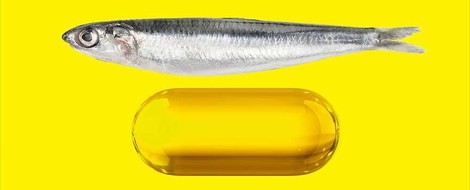Your podcast discovery platform
Curious minds select the most fascinating podcasts from around the world. Discover hand-piqd audio recommendations on your favorite topics.

piqer for: Global finds Health and Sanity Doing Good
Bangalore-based Rashmi Vasudeva's journalism has appeared in many Indian and international publications over the past decade. A features writer with over nine years of experience heading a health and fitness supplement in a mainstream Indian newspaper, her niche areas include health, wellness, fitness, food, nutrition and Indian classical Arts.
Her articles have appeared in various publications including Mint-Wall Street Journal, The Hindu, Deccan Herald (mainstream South Indian newspaper), Smart Life (Health magazine from the Malayala Manorama Group of publications), YourStory (India's media technology platform for entrepreneurs), Avantika (a noir arts and theatre magazine), ZDF (a German public broadcasting company) and others.
In 2006, she was awarded the British Print-Chevening scholarship to pursue a short-term course in new-age journalism at the University of Westminster, U.K. With a double Masters in Globalisation and Media Studies from Aarhus Universitet (Denmark), University of Amsterdam and Swansea University in Wales, U.K., she has also dabbled in academics, travel writing and socio-cultural studies. Mother to a frisky toddler, she hums 'wheels on the bus' while working and keeps a beady eye on the aforementioned toddler's antics.
Popping A Fish-Oil Pill, Are You? You Might Want To Read This
Fool’s gold, says the headline. And that says a lot. In what is arguably the biggest blow to date to the global supplements industry (a market estimated to be worth more than $130 billion), scientists who conducted a meta-study (study of studies) are saying the long-term effects of omega-3 pills (virtually the king of vitamin supplements) is mostly hype and little else.
The study conducted by the UK-based Cochrane, which evaluates medical research, compared 79 trials involving 112,059 people and concluded that they could find “little or no difference” to risks of heart disease, stroke or other heart-related irregularities.
Omega-3 supplements are of course mostly taken in the form of fish-oil pills, which is a $30 billion industry by itself. Add to this the general belief world over that fish-oil supplements are a panacea to many illnesses and the historical belief that cod-liver pills are a sort of ‘magic potion’ to tackle rickets, for many people it became a daily habit to pop one pill every day.
Why this story gains more importance is because it gives further context to the larger issue of vitamin supplements — sold and marketed heavily on the promise of ‘easy health and long life’ being ultimately just that: a fantastic marketing success.
The second, more worrying point the article is making is about the so-called ‘reduction industry’ that creates the oily fish extraction system. And it has a history of its own, targeting specific marine species and often disturbing ecosystems in the process. Recently, it has turned its attention to the Antarctic krill, a “keystone prey species” in the entire Antarctic ecosystem. This does not sound like good news at all — especially when it is becoming pretty evident that those pills in our medical cabinet are not doing anything much to our heart.
